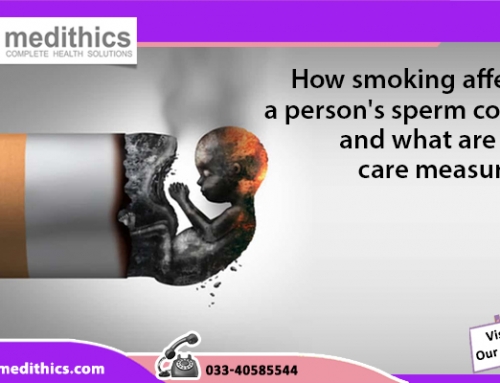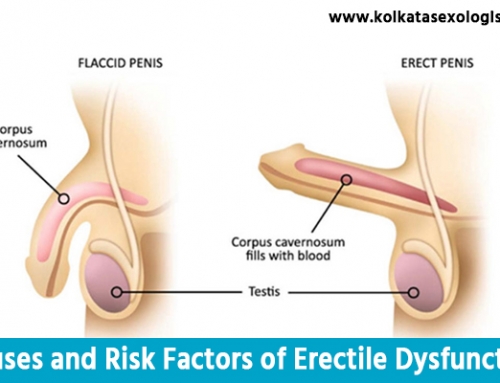Some important facts about erectile dysfunction:
A persistent difficulty in achieving and maintaining sufficient erection to have sex is called erectile dysfunction (ED).
Besides medical causes, there can also be psychological causes for this.
- An underlying medical condition affecting the blood vessels or nerves supplying the penis is normally the cause of organic causes.
- The cause of erectile dysfunction can be numerous prescription drugs, recreational drugs, alcohol and smoking.
Causes
Erectile dysfunction can sometimes also happen because of a combination of physical and psychological issues. Suppose, your sexual response is slowed by a minor physical condition and this might cause anxiety about maintaining an erection. Erectile dysfunction can worsen because of this anxiety. Its treatment must be done by done by an experienced erectile dysfunction doctor.
Physical causes
Common physical causes of erectile dysfunction are:
Heart disease
- Atherosclerosis or clogged blood vessels
- High cholesterol
- High blood pressure
Diabetes
- Obesity
- Metabolic syndrome – a condition involving increased blood pressure, high insulin levels, body fat around the waist and high cholesterol
Parkinson’s disease
- Multiple sclerosis
- Certain prescription medications
- Tobacco use
Peyronie’s disease in which scar tissue develops inside the penis
Various forms of substance abuse including alcoholism
Sleep disorders
Treatments for prostate cancer or enlarged prostate
Surgeries or injuries affecting the pelvic area or spinal cord
Psychological causes
In triggering the series of physical events causing an erection, which starts with feelings of sexual excitement, a key role is played by the brain. There are a number of things that can interfere with sexual feelings and cause or worsen erectile dysfunction. These include:
- Depression, anxiety or other mental health conditions
- Stress
- Relationship problems
Diagnosis
Physical exam. Your penis and testicles are carefully examined and your nerves are checked for sensation.
Blood tests. To check for signs of heart disease, diabetes, low testosterone levels and other health conditions, a sample of your blood might be sent to a lab.
Urine tests (urinalysis). To look for signs of diabetes and other underlying health conditions, urine tests are used like blood tests.
Ultrasound. A specialist usually performs this in a clinic. Over the blood vessels that supply the penis, a wand-like device (transducer) is held and a video image is created by it to let your doctor see if you have blood problems. In combination with this test, sometimes medications are also injected into the penis for stimulating the blood flow and producing an erection.
Psychological exam. You might be asked questions by your urologist to screen for depression and other possible psychological causes of erectile dysfunction.
Treatment
Oral medications
For many men, oral medications prove to be a successful erectile dysfunction treatment. They include:
Sildenafil (Viagra)
Tadalafil (Adcirca, Cialis)
Vardenafil (Levitra, Staxyn)
Avanafil (Stendra)
The effects of nitric oxide are enhanced by these medications. Nitric oxide is a natural chemical produced by your body that relaxes muscles in the penis. Blood flow increases as a result of this and allows you to get an erection in response to sexual stimulation.
Vacuum devices
For men who do not want or cannot use drug treatments or find them to fail, vacuum erection devices are used to produce an erection. A vacuum pump is sealed around the penis that draws blood and in this way, it is made rigid. An accompanying band is used after removing the vacuum pump to maintain the erection of the penis.
Surgical treatments
There are several surgical treatment options:
Penile implants: After not getting success with drug treatments and other non-invasive options, these are the ultimate option for men.
Vascular surgery: For some men there is another surgical option called vascular surgery, attempting to correct some blood vessel causes of erectile dysfunction.
In the most extreme cases, surgery is used which is the last resort. In surgery, recovery time varies but there are high success rates.




